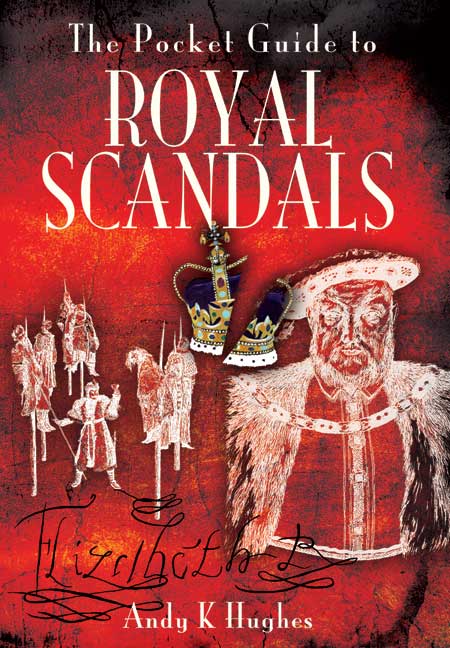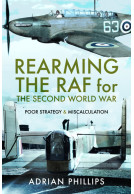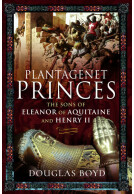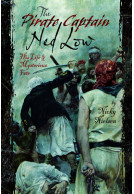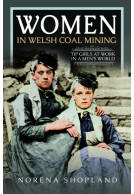The First Royal Media War (Hardback)
Edward VIII, The Abdication and the Press
Imprint: Pen & Sword History
Pages: 240
ISBN: 9781399065412
Published: 6th April 2023
(click here for international delivery rates)
Order within the next 30 minutes to get your order processed the next working day!
Need a currency converter? Check XE.com for live rates
| Other formats available - Buy the Hardback and get the eBook for £1.99! | Price |
|---|---|
| The First Royal Media War eBook (12.2 MB) Add to Basket | £6.99 |
The abdication crisis of 1936 demolished the wall of silent deference that had protected the British royal family from press comment and intrusion since the days of Queen Victoria. King Edward VIII was a child of the burgeoning age of media and the first celebrity monarch, but the immense personal popularity created by his charm and good looks was not enough to save him when he came into conflict with a government that embodied the conservative ethos of the time. Nor did the support of powerful media barons. In the United States William Randolph Hearst, who inspired Citizen Kane, dreamed of giving Britain an American Queen and manoeuvred with Wallis Simpson to place her on the throne. In Britain the Anglo- Canadian newspaper magnate Lord Beaverbrook hoped to use the confrontation between the King and the government to force the prime minister, his bitter enemy Stanley Baldwin, out of power. Edward was blocked from broadcasting his case directly to the public, which was the source of deep resentment to him. The government treated the couple’s media initiatives as declarations of war and was prepared to respond savagely. The British press remained tactfully silent almost until the end of the crisis, but behind the scenes, a cold war was being fought.
For the rest of his life, Edward fought to air his grievances against the ill-treatment to which he thought that he had been subjected. He believed that he had been forced to abdicate by a coalition of reactionaries grouped behind the Archbishop of Canterbury. Edward resented bitterly the ostracism to which he and Wallis were subjected by his brother and sister-in-law, King George VI and Queen Elizabeth, especially the refusal to grant his wife royal status. With sometimes farcical results, Edward tried to find authors who put over his side of the story. Beaverbrook supported Edward but tried to bend Edward’s quest to fit his own agenda. The establishment did its utmost to restrain Edward and maintain a discreet silence over the crisis, but gradually members of the royal court abandoned reticence and fought back.
The abdication challenged the British monarchy as an institution. A large part of the legacy is today’s no-holds-barred media environment where the royal family's issues are fought in a ruthless glare of worldwide attention.
Phillips provides a compelling case for this event creating lasting change in the relationship between the royal family and the press as royal private lives became the focus of intense media coverage.
Carolyn Harris for the Royal Studies Journal
Every time I picked up "The First Royal Media War", I learned something about the role of the media during the abdication crisis of 1936.
NetGalley, Ashley Maimes
I can only imagine the amount of research Adrian Phillips must have done for this non-fiction book, as he delves deeply into the various sides that were involved with this era in history, explores differing opinions, those who held them, and how the media was both affected by, and effected things at that time.
I recommend this book.
An interesting look at the media’s role in the Abdication crisis. So many years later we are still witness to the drive of the media in reporting a story, for better or worse.
NetGalley, Susan Derbacher
Undoubtedly, the romance of Edward (David) and Wallis made headline news and the differences of the public and the press created the constantly stirred ‘media pot’. Opinion, impression, personal gain were only a few of the ingredients that fueled this headline making story.
Adrian Phillips provides an intriguing view of what it was like in 1936, opening an untouched door into the character and private world of Edward and his reliance on his popularity to steer an already turbulent course.
Over and over, I could not help but see the similarities between Edward, Princess Margaret and Harry and the judgements made from tabloid like reporting.
A much enjoyed and worthwhile read.
'This is a fascinating book. The Abdication Crisis was much more- and much more interesting- than a tragic royal love story. Adrian Phillips shows, in meticulous and absorbing detail, how King, press and government used and were used by each other, in an episode that feels in some ways very much of its time, and in others, startlingly contemporary.'
Andrew Connell
This is an interesting take on the entire Abdication Crisis of Edward VIII and the attempt to rewrite the narrative through the media. Of course, back in the 1930s and beyond, there was no internet. Books, magazines and newspapers were the primary source although there was dabbling in the broadcast media too. There was not the instant spread of the stories, fictions or not, but there was a clear agenda on both sides before the Abdication and primarily on the side of the Duke and Duchess afterwards.
NetGalley, Susan Johnston
As he did so often, Edward misread the tea leaves and thought more highly of his appeal and popularity than it turned out he had. While much of the blunders and missteps were not reported until after the fact, he called the bluff of the government and establishment and was shocked when they did not fold. From that point on, he attempted to rescue both his and his wife’s reputations. He thought he was far more cunning than those around him as they manipulated him and the story for their gain too.
What he did accomplish, much to the chagrin of future Royals, was his opened the floodgates for innuendo and gossip. What had been off limits now was fair game and a very profitable one. Recent events have proven that. I found the media influence through titans such as Hearst and Beaverbrook fascinating. The King became a pawn. And things would never be the same. Four purrs and two paws up.
Once again Adrian Phillips has combined meticulous historical research with consummate story telling. This book gives a fascinating insight into how much has changed (and how much hasn’t!) in the Royal family’s relationship with the media. I would suggest it should be required reading for any Royal Press Officer!
Sally Page
This is a fascinating book in which the vanities of the main players are set against the self-interest of the newspaper barons and the manoeuvrings of politicians, in a crisis caused by a king who failed to distinguish between the private and constitutional aspects of a monarch. The desire of different parties to record their own version of their involvement in and the handling of the abdication continued for decades until 1985, when the royal family’s position was presented in Royal Feud. Phillips blends wide research with a pacy story that brings the past into the present. When the Duke of Windsor (with a ghost writer) published A King’s Story in 1951, ‘a precedent had been set for royals openly to engage in public discussion on controversial aspects of their lives.’ The genie was out of the bottle.
Jane Dismore, author of 'Princess: The Early Life of Queen Elizabeth II'
Adrian Phillips’ fascinating new offering provides a lively (and perhaps timely) account of the First Royal Media War, namely ‘the drama of the abdication crisis and the fight to control its memory’ (p.196). The actual story of Edward VIII and Wallis Simpson takes something of a back seat, therefore, to a rigorous and entertaining analysis of the story of the story of this most infamous royal romance, the direct constitutional ramifications, and the bitter battle to direct the narrative in the years that followed. Concentrating primarily on the mid-1930s through to the early 1960s, the actions of a wide range of interested parties on both sides of the Atlantic are forensically dissected, from politicians to media barons, courtiers, lawyers, historians and ambitious journalists.
Andrew Stedman, author of Alternatives to Appeasement: Neville Chamberlain and Hitler’s Germany.
The author pulls few punches in his assessment of the contrasting motives of the major players in this affair. Thus, for Phillips, far from being the starry-eyed, detail-averse drifter he is often characterised as, Stanley Baldwin emerges as a deft and decisive calculator, unafraid to authorize the covert use of MI5 agents as well as wiretapping in an effort to shroud sensitive royal matters in a cloak of secrecy – then to smear Edward, ‘Mrs Simpson’, and their various supporters once swords were drawn and the crisis peaked. Figures like Geoffrey Dawson, editor of the Times, Cosmo Lang, Archbishop of Canterbury, John Reith, Director General of the BBC, and even Alec Hardinge, Edward’s Private Secretary (he of the famous letter), are all pawns manipulated in a chess game played by a savvy Prime Minister desperately fighting his corner and trying to conduct the business of government free from clumsy royal intrusion.
Less surprising, perhaps, is Edward himself, presented here as the petulant, litigation-hungry Nazi-sympathiser, convinced of his own ‘divine right of celebrity’ (p.12), and never backwards in exploiting an opportunity to undermine the Prime Minister. As King – and then former King – Edward is utterly dominated by Simpson and remains bitter for the rest of his life over their treatment by the Windsors, particularly on the vexed question of royal titles. Thus, the busy couple seek to court a string of useful allies for their own egotistical ends, from Lord Beaverbrook and the Rothermeres (proprietors of the Express and Mail, respectively) in the UK, to media tycoon William Randolph Hearst in America. This is done, first, in an attempt to secure a virtual news blackout around matters relating to the divorce in Britain and to promote the dream of ‘Queen Wallis’ in the US, then, second, to garner sympathy for their position during the abdication itself and the apportioning of blame thereafter.
Perhaps most enjoyable is Phillips’ examination of Beaverbrook, seen as an Ahab-like fantasist, motivated throughout the crisis with an ‘obsessional hatred of Baldwin’ (p.154), determined to oust his rival from power and supplant him with Churchill. In the long years that followed, Beaverbrook exploited any opportunity to meddle in the presentation of the royal couple, largely for his own amusement, and with the primary motive of settling old scores. Thus, in the unseemly scramble to write the first ‘historical’ accounts of this period – heavily briefed by the main players from each side – interesting characters like Compton Mackenzie, Walter Monckton and Philip Guedalla are all discussed. Beaverbrook then dominates the post-war historiographical playing-field, sticking his fingers into various literary pies (as well as the BBC), seeming almost at times to relegate Edward and Wallis to secondary actors behind his insatiable desire to dance on Baldwin’s grave.
What emerges from all this is a great read, dripping with intrigue, throwing new light onto a fascinating period, sure to be regarded as an essential source for anyone interested in the royal scandal – as well as politics and the press in the UK (and wider) during this tumultuous era.
All in all, a fascinating review of how the press/media worked almost 100 years ago, and how it could make a difference in the political life in a country. The power of the press became a powerful thing, indeed.
NetGalley, Diane Fairbanks
Very timely read for those who can't get enough of the scandal that is Edward VIII and Wallis Simpson.
NetGalley, Kelly Baroletti
Rating: 5 out of 5 stars
NetGalley, Meg Gajda
King Edward VIII was the first celebrity!. His romance and possible marriage with Wallis Simpson - American divorcee - made headlines in the British newspapers. Some newspapers supported the king and his right to marry but others opposed it. Then the whole media war started. The book is well researched and detailed. Highly recommended!
This was an interesting read and certainly timely. I guess the more things change, the more they stay the same. So many similarities between Edward and Harry.
NetGalley, Allison VonVange
I am a huge fan of all things royal history pre Queen Victoria onwards and I found this book fascinating. I knew quite a bit from watching various documentaries on the abdication etc however what Adrian has done is taken it up another level and shown us what was really going on behind closed doors and also for me showing the Duke of Windsor’s real character.
NetGalley, Cennin Thomas
I found it an easy & interesting read.
Rating: 5 out of 5 stars
NetGalley, Caroline Palmer
A fascinating look at the Abdication and Edward’s failed attempts to ‘modernize’ the monarchy and how he bungled his image in the media, and how the media worked with conservative elements opposed to Edward to force the abdication. This book has special significance given the media coverage of Hillary Clinton’s emails that helped her lose an election.
Rating: 5 out of 5 stars
NetGalley, Greville Waterman
What an excellent and timely book given what is happening today! A fascinating and deeply researched analysis of how the media dealt with the relationship between Edward V111 and Wallis Simpson and the abdication crisis. The battle lines were drawn between the Hearst American press, eager to print details of the scandalous affair and help put an American on the English throne and the Beaverbrook titles who were anti Stanley Baldwin the prime minister.
Edward was unable to publicise his point of view and the English press tactfully remained silent about the truth of the matter until almost the end - so unlike the media frenzy of today.
This was a fascinating subject impeccably and forensically covered by an author who certainly knows his subject.
Highly recommended.
About Adrian Phillips
After a career as an investment analyst and strategist in London and Frankfurt with a special focus on the political influences on markets, Adrian returned to university for a postgraduate degree in history, which had long been his passion. He focused on how top level decisions were taken in Whitehall and how bureaucrats could often wield greater power than politicians. This features in his books: The King Who Had To Go, which covered the abdication and Fighting Churchill, Appeasing Hitler, which covered appeasement. Rearming The RAF applies his knowledge of how the hidden mechanisms of power operate to military strategy.
Edward VIII signs Instrument of Abdication
10th December 1936
Edward VIII signs Instrument of Abdication, giving up the British throne to marry American divorcee Wallis Simpson
The Pocket Guide to Royal Scandals (Paperback)
Who said the Royal Family and other sovereigns haven’t been surrounded by scandal for hundreds of years? In a snapshot of history we know that: • One king beheaded two of his wives • Another king married his stepmother, and another was murdered by his stepmother • One was executed by having a red hot poker shoved inside him • One killed his son, others had lots of affairs and illegitimate children • One married his brother’s widow • One liked the Nazis, an emperor had 40,000 concubines and several monarchs killed each other. This book also links royalty to paedophilia, pornography,…
By Andy HughesClick here to buy both titles for £34.99








